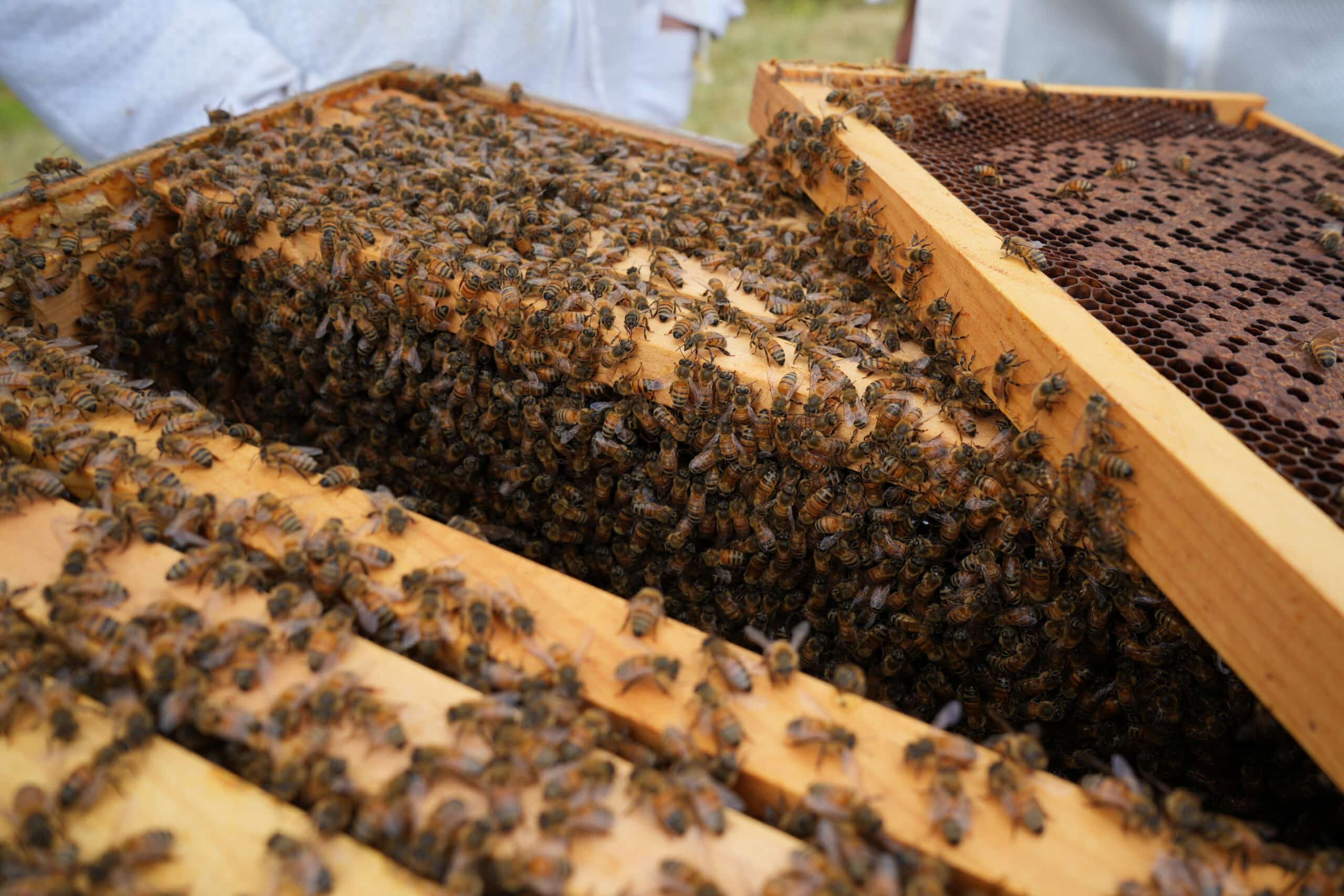Springtime in Kentucky…
I often hear new beekeepers say my bees are mean. Most of the time, it’s not the bees at all, it’s the beekeeper making them defensive. Here are some simple things to help keep your bees calm while doing inspections.
The Smoker.
Smoke can help calm the bees. It disrupts alarm pheromones that the guard bees release when they sense danger. However, smoke isn’t always necessary, and in fact, over smoking your colony can aggravate the bees more than no smoke at all. Smoke should be used as a tool, not a weapon. Usually, a light smoke to the entrance and then again near the top of the frames after the inner cover is removed is all that is needed. After that, don’t use any more smoke unless the bees flare. You may need to use a small amount of smoke to move the bees around to make it easier to remove some frames, or when you’re reassembling the hive to get them out of the way, but here again, only use small amounts, and use the winds direction to help guide the smoke to where you want it to go. Often I see a new beekeeper fighting the wind with their smoker by pumping it harder to force the smoke in the direction they want. These quick hard pumps not only produce smoke, but also a lot of hot smoke. Nothing pisses bees off more than hot smoke. Ideally you want to have cool smoke passing across the bees. So position your smoke up wind and let the wind help carry the smoke across the location where you want it.
Be Calm.
When working your bees, it is important not to bump, knock, or jar the hive and its components. Work slowly, especially as you’re pulling frames. Avoid rapid or jerky movements. Have a plan before you even enter the hive. Know what you’re going to do while in there and what your purpose is. Think ahead of time where you’re going to put things and avoid later bumping them. If it is windy out, think about how the wind could possibly tip a frame causing the bees to flare up. Keep your inspections as brief as possible, especially during the dearth periods as other hives may become interested in those exposed frames.
Move slowly, and deliberately.
If the bees flair, stop where you are. Give them just a few seconds, and you will see they will calm back down rather quickly. Learn to read their signs. If they bump you, just stop for a second and they will chill. As you open the inner cover, tip the far end up first, using the cover as a shield for your face. This way the bees don’t even see you as you are removing the cover.
Know when the best time to work your bees is.
The older the bees get the grumpier they get. Young nurse bees are the most gentle and docile bees in the hive. The old field bees are the meanest. The best time to work you hive is when the field bees are out foraging. This means that there are less bees in the hive, so not as many bees to contend with. So, a warm sunny day after the field bees are out foraging. Trying to inspect on a cooler, cloudy, or rainy day is not such a good idea, as the field bees will be in the hive and they will be waiting for you.
Later in the summer…
Are your bees on edge and don’t appreciate you being around? You used to be friends, right? Spending an afternoon with the girls was something to which you used to look forward, but suddenly things have changed.
Those docile bees you’ve been working with all spring are likely to become a little extra defensive this time of year. You may be wondering what’s happened to your girls?
This time of year, the nectar flow is slowing down, and your bees now have lots of honey stores in the hive that they are protecting. Varroa mite counts are also climbing. More mites per bee can put your bees on edge. Also, your hives have grown and have a lot more bees packed in them, many being the older cranky field bees.
They naturally become more defensive of their food supply that is intended to see them through the chilly winter months.
Outside the hive the nectar flow is dropping off and this can mean more robbing behavior by other bees. At the same time hungry hornets and yellow jacket numbers are peaking. Your colonies will be very busy defending against these predators and against robber bees from other colonies. I found 3 dead bumble bees in my hive late summer last year!
It’s no wonder you may find your girls a little on edge. You will come to find that it happens this way every season. No worries though. Come next spring you will find they are the same old friendly bees they always were.

